The Best Tips to Consider in a Balanced Diet
A balanced diet is key for overall health and well-being, and it can be a little complicated to create on your own. That's why we've put together the following tips to help you get started:
Start by eating a variety of fresh foods every day. This will provide you with vitamins, minerals, and other nutrients that are essential for good health.
What is a Balanced Diet?
A balanced diet is one that provides your body with all the nutrients it needs to function properly. It should include a variety of different types of foods in the right proportions, and be appropriate for your age, sex, and level of physical activity.
Please watch the video: 7 Tips for a Balanced Diet
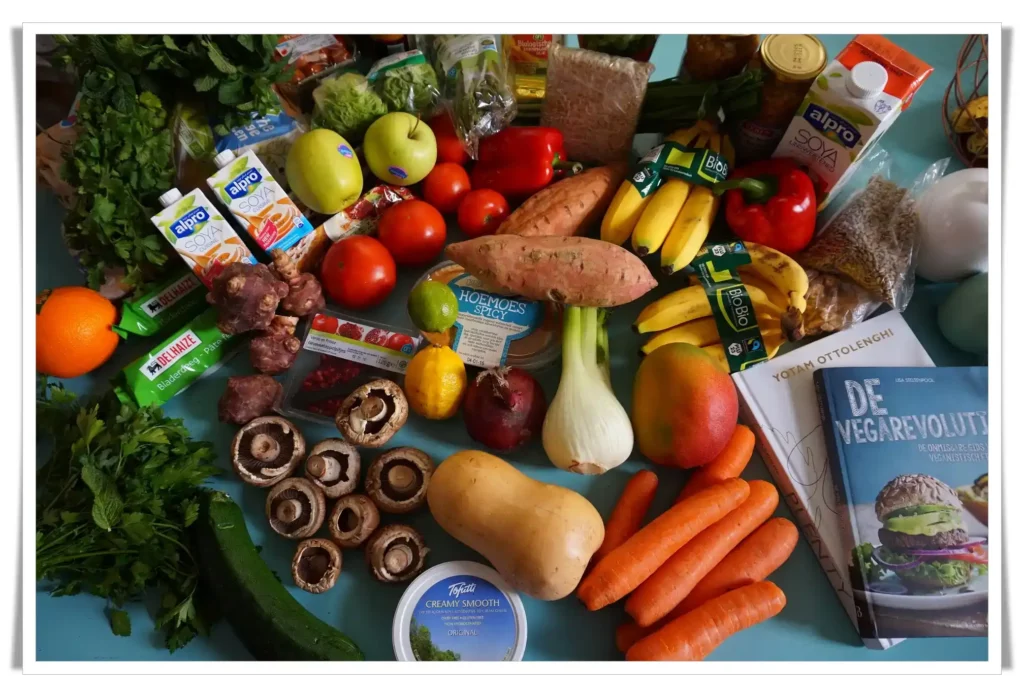
What is a Balanced Diet?
A balanced diet typically includes:
- Fruits and vegetables: These should make up a large portion of your diet. Aim for at least 5 servings of fruits and vegetables per day.
- Grains: Choose whole grains, such as whole wheat, oats, and brown rice, rather than refined grains.
- Protein: This can come from a variety of sources, including meat, fish, beans, legumes, and nuts.
- Dairy: Choose low-fat or fat-free dairy products, such as milk, yogurt, and cheese.
- Fats: Choose healthy fats, such as olive oil, avocados, and nuts, rather than unhealthy saturated and trans fats.
It is also important to pay attention to portion sizes and not consume more calories than you need. A registered dietitian or nutritionist can help you create a balanced diet that meets your specific needs.
Please watch the video: 7 Tips for a Balanced Diet
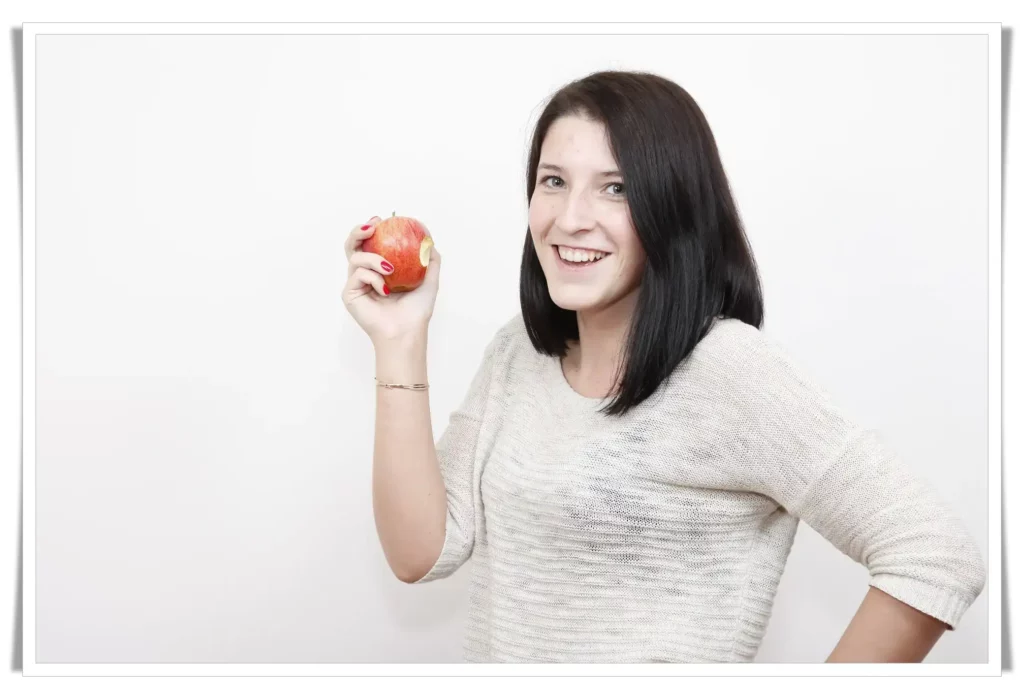
The Best Tips to Consider in a Balanced Diet
Drink at least eight 8-ounce glasses of water or other fluids to keep your body healthy and hydrated. Additionally, it is important to get regular physical activity. Exercise helps to improve overall health, reduce stress, and maintain a healthy weight. Make sure to get at least 30 minutes of physical activity most days of the week. Finally, it is wise to limit your intake of processed and sugary foods. These foods are high in calories and low in nutritional value and can lead to weight gain and other health problems. Eating a balanced diet and exercising regularly are key to staying healthy and feeling your best.
Please watch the video: 7 Tips for a Balanced Diet
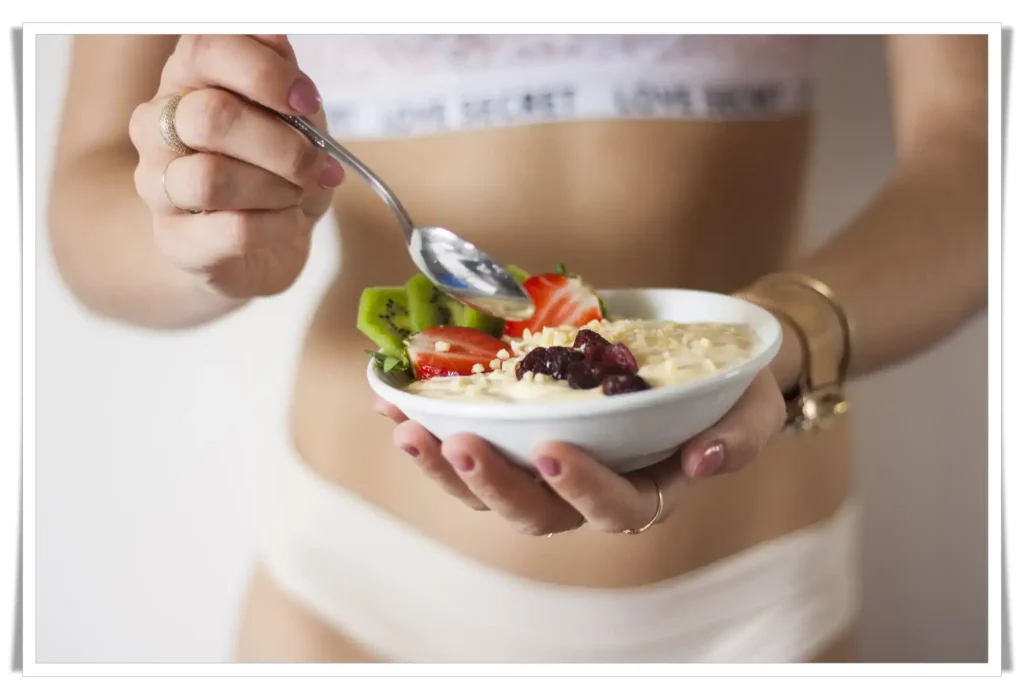
The Best Tips to Consider in a Balanced Diet
Make sure every meal includes plenty of fruits and vegetables (5 servings per day). Fruits & Veggies are low in calories & dense in nutrition which helps keep hunger at bay throughout the entire day. They also offer anti-inflammatory properties which aid digestion & prevent joint inflammation overhead making them an excellent addition to any healthy diet!
A Beginner’s Guide To Balancing The Food Groups
It's difficult to know what to eat when trying to reduce weight at the beginning. You don't want to be hungry, which is a disadvantage of any diet, but you also don't want to compromise your weight reduction by eating too much. So, how can you strike a balance? You achieve this by balancing your food groups.
Let’s Get Visual
Let’s break this concept of balancing food groups down into a visual. Take a look at your plate and divide it in half. Fill one-half of it with vegetables and fruit. Now, split the other half in two and fill one side with meat or a high-quality protein choice like eggs, cottage cheese, or legumes. The remaining portion of your plate can be completed with a whole grain choice like a hearty multigrain bread or another complex carbohydrate.
Please watch the video: 7 Tips for a Balanced Diet
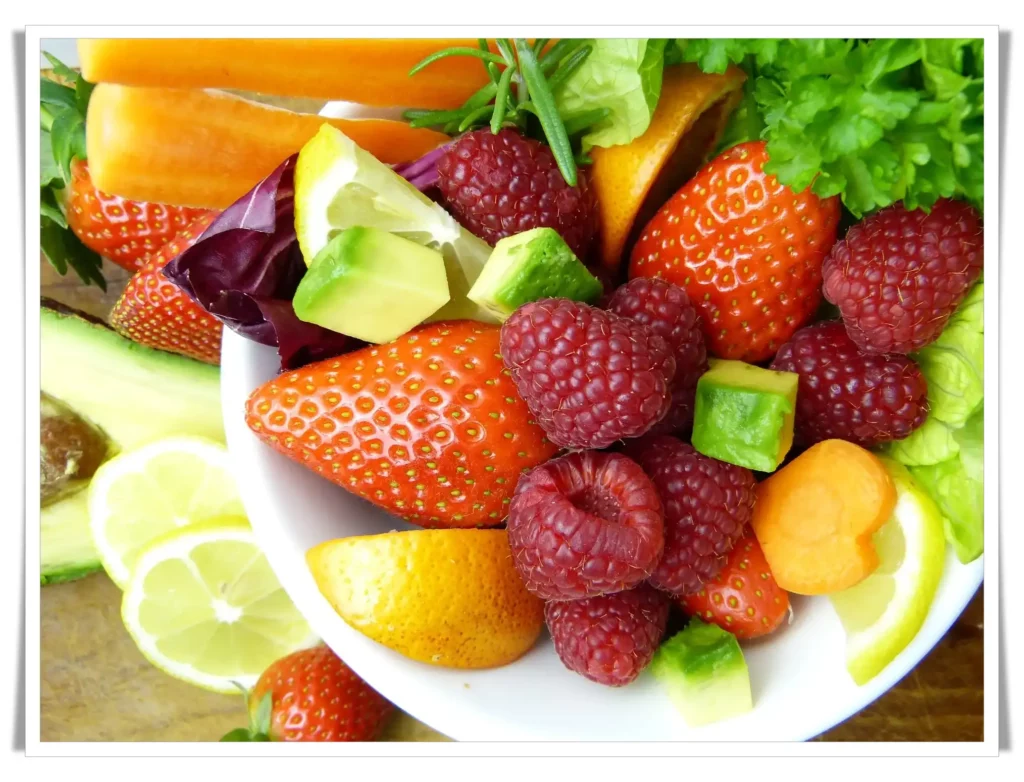
The Best Tips to Consider in a Balanced Diet
Breakfast
In taking a look at your day, let’s take define what each meal and snack should look like. For breakfast, you always want to have a high-protein meal because it sets your body into fat-burning mode right away and also keeps hunger pangs at bay longer. Greek yogurt is very high in protein and has a thick consistency to it, making it an ideal and filling choice to start your day. If you are lactose intolerant, have a couple of eggs. Add a cup of fresh fruit, a slice of whole-grain toast, and a handful of almonds or walnuts, and you are off to a good start to your day.
Top Best Benefits of Eating Fruits and Vegetables
Morning Snack
A handful of vegetables like carrots or a small bunch of grapes with a slice of low-fat cheese or perhaps a couple of tablespoons of peanut butter or the hummus will keep you full and humming along into your lunch hour.
Please watch the video: 7 Tips for a Balanced Diet
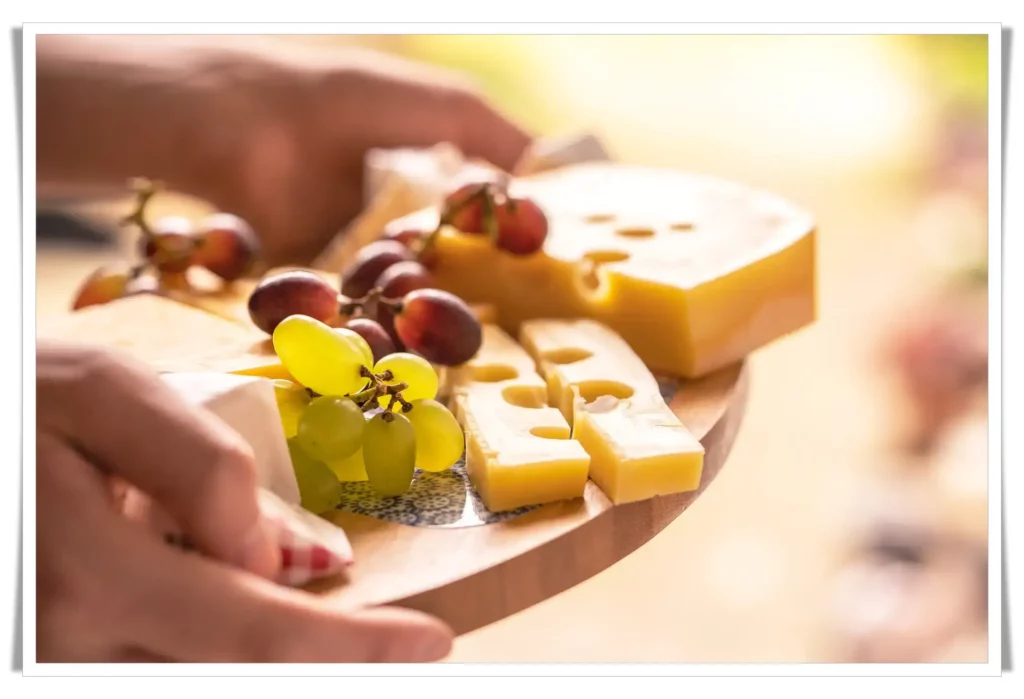
The Best Tips to Consider in a Balanced Diet
Lunch
Make the majority of this meal vegetables. Vegetable soup, salad, or just a mixture of fresh vegetables and low-fat dip should be the foundation of what you eat. Add three ounces of lean meat like a chicken without the skin, lean beef, or legumes if you are vegetarian, plus a few whole grain crackers, and you have enough healthy protein and fiber to fill you until late afternoon.
Ideal Method for Cooking Fresh Vegetables
Dinner
Again, this meal should be half a plate of vegetables – say, tossed green salad with a sweet potato on the side – and then a cut of lean meat or fish and you have another successful meal sitting in front of you.
3 Easy Portion Control Habits To Start Using Today
Portion control is probably one of my most minor favourite topics to think about when trying to lose weight. Images of scales, measuring cups, and spoons, and countless hours weighing and remembering how much of what you ate spring to mind when the words 'portion control' is uttered.
Yet it doesn't have to be that way or that hard. There are a few simple tricks to portion control that, when practiced consistently daily, yield weight loss results.
1) Divide and conquer
This trick is the easiest and can be practiced anywhere with any menu, whether you are in a restaurant, visiting a friend's house, or at home. Look at your plate when it is empty and divide it in half. The top half should be filled with vegetables or a combination of fruit and vegetables. Fresh tossed iceberg lettuce salad along a side of steamed broccoli. Bright carrots sitting next to a lovely serving of green beans. Sliced sweet strawberries nestled up against a mound of dark leafy greens. You get the idea. The top half of your plate should always reflect a combination of foods that are fruits and vegetables, or just all vegetables.
Please watch the video: 7 Tips for a Balanced Diet
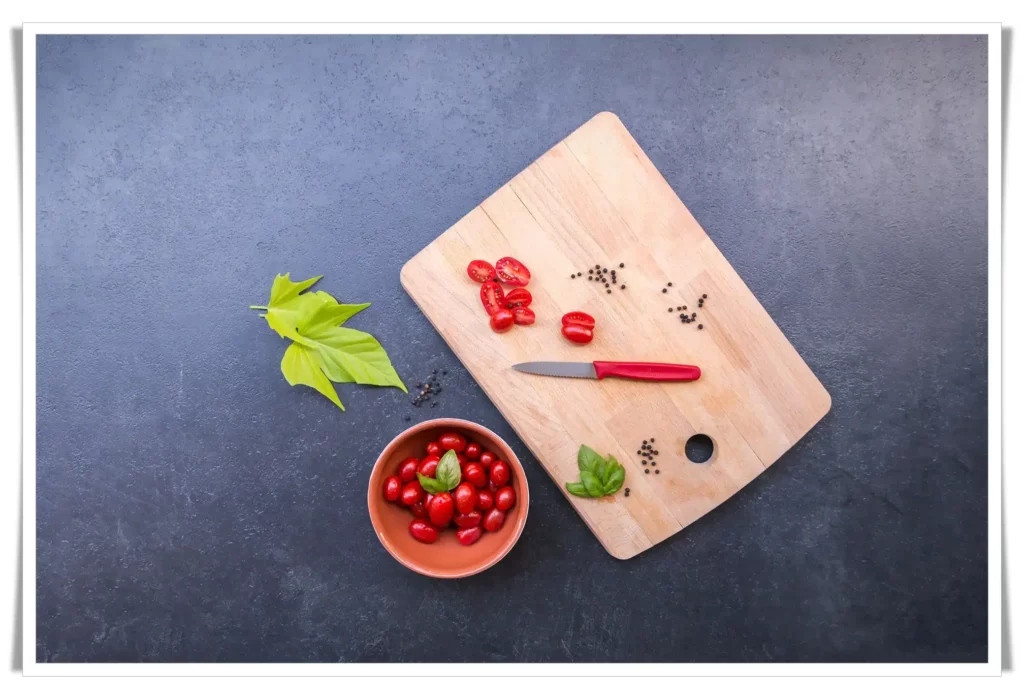
The Best Tips to Consider in a Balanced Diet
The lower half of your plate should be split into two sides: one side is the protein. Chicken, beef, fish, or beans should occupy this portion of your plate. The other side should play host to a carbohydrate, preferably complex: brown rice, a slice of pumpernickel bread, or maybe a serving of whole grain pasta (without any cream or butter-based sauce). And that's all there is to it! Portion control without heavy thinking, no matter what is being served.
2) Smaller is better
Another easy tip is one of the oldest dieting tricks in the book - a smaller plate. When you fill-up your (smaller) plate with the ratio of vegetables, fruits, carbs, and protein mentioned above, you will trick your mind into thinking that you are indulging - your eyes can't see any space on the plate, so this meal is going to be satisfying!
3) Work it to get it
Don't bring the serving dishes to the table. Studies show that when you have to get up from the table to get another helping of food from the stove or kitchen counter, chances are you won't. Overeating is reduced, and so is your total caloric intake for that meal. Do that for every meal and your total daily calories will be reduced, aiding in your weight loss. So keep those pots, pans, and dishes of food away from the table and on the kitchen counter. Your waistline will thank you for it!
A Guide to the 6 Nutrients Your Body Needs On A Daily Basis
For your body to function properly, you need to give your body six essential nutrients each day. Here's a quick overview of each one.
1) Water
Water is the most basic nutrient your body needs. Every single cell in your body needs it to function and up to 70% of our body is made up of water. It helps regulate our body temperature and heartbeat, helps the cells deliver energy, and is vital in burning fat, just to name a few functions. Most experts recommend 7-8 glasses of water a day in addition to the five servings of fruits and vegetables we should be eating. Anything with caffeine in it does not count toward your recommended daily allotment since caffeine drinks like coffee and tea expel water from the body.
The Best Reasons For Drinking Water!
2) Minerals
Please watch the video: 7 Tips for a Balanced Diet
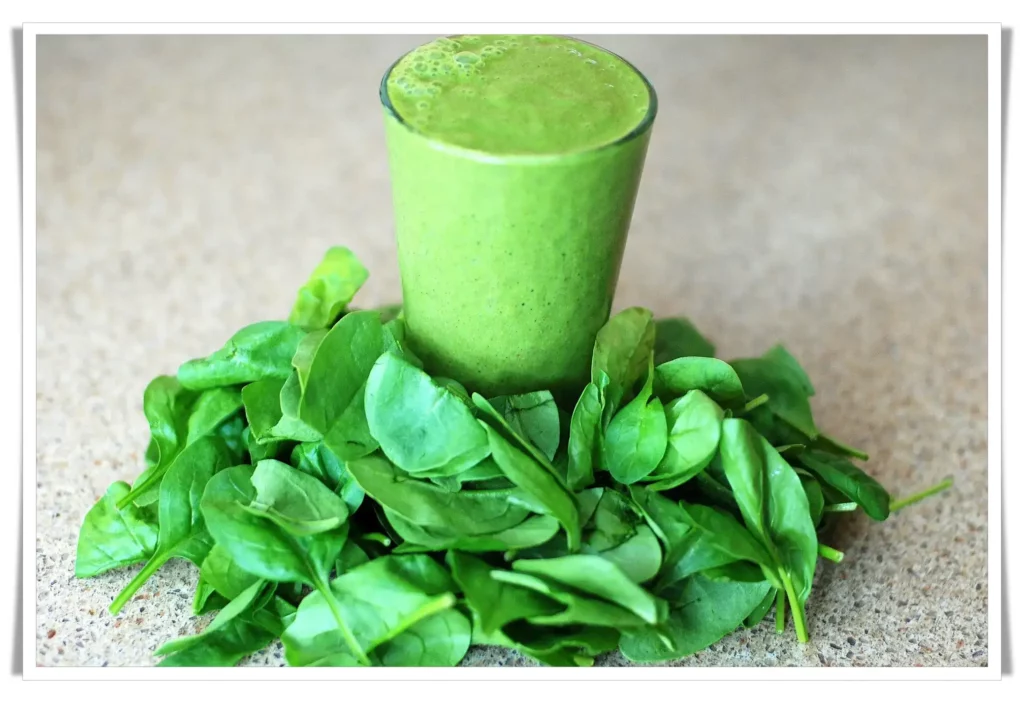
The Best Tips to Consider in a Balanced Diet
Minerals like magnesium are involved in over 500 distinct processes in the body; sodium and potassium help keep your heart beat regular and calcium is essential for not only your bones but for your muscles, too. Eating a wide variety of vegetables, especially dark leafy greens, will help provide the daily intake you need.
3) Vitamins
Vitamins are chemical components that help other chemical reactions happen in our bodies. Involved in almost every function in our body, from our immune system to our mood levels to our bone strength, vitamins make our bodies' functions possible. Since cooking destroys certain vitamins, it is best to eat the majority of your food raw, steamed, grilled, or stir-fried to get the most benefit from the available vitamins in your food.
4) Protein
Please watch the video: 7 Tips for a Balanced Diet
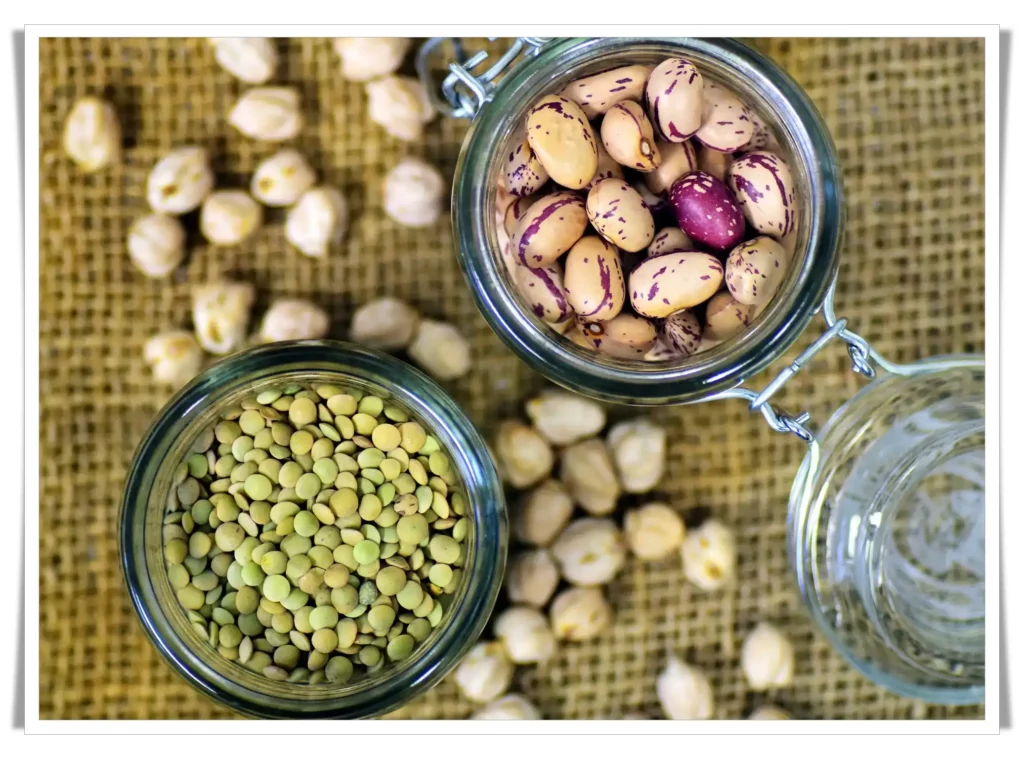
The Best Tips to Consider in a Balanced Diet
Without protein, our bodies couldn't manufacture the amino acids needed to repair muscle tissue or control certain hormones properly. It is also used as a source of energy when there are not enough carbohydrates available. Good sources of protein include eggs, fish, chicken, beef, milk, beans, and seeds.
5) Carbohydrates
The fuel that is the body's first choice in running the brain and the muscles, carbohydrates play an important role in the everyday functioning of what makes us who we are. There are two classes of carbohydrates: simple and complex. Simple carbohydrates like honey, refined grains, and candy provide an almost instant energy boost that doesn't last long. Complex carbohydrates, on the other hand, provide the body fuel as well, but also depart a more sustained source of energy, avoiding those highs and lows. Foods that should be considered good carbohydrate sources are vegetables, legumes, nuts, and seeds.
6) Healthy Fats
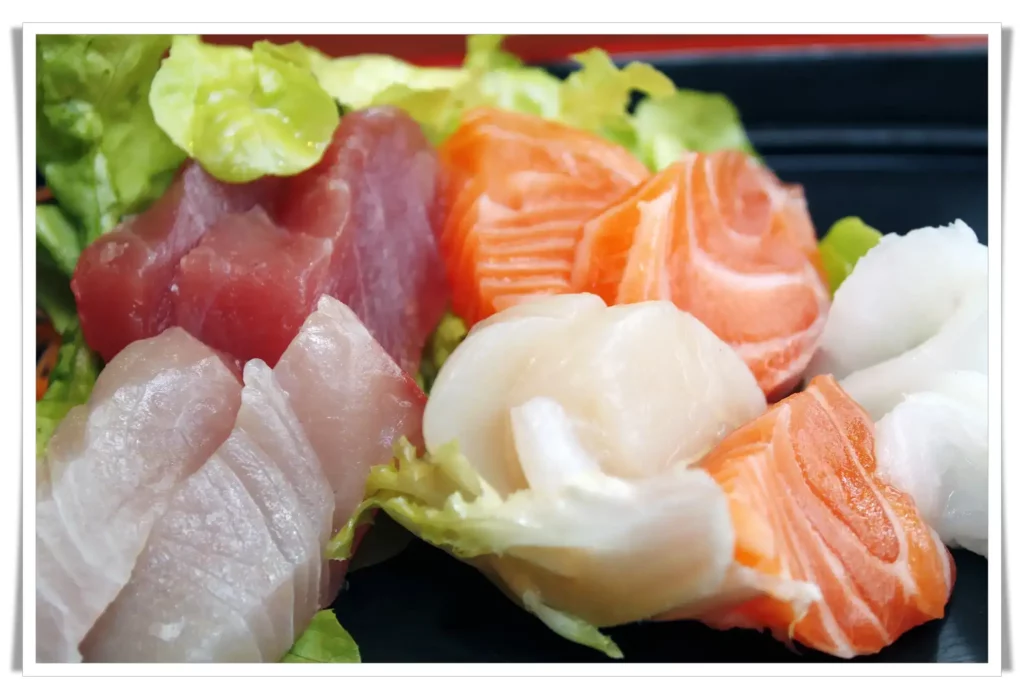
The Best Tips to Consider in a Balanced Diet
How You Eat Your Food Is Just As Important As What You Eat
A lot of focus is put on what you eat while you are dieting. But how you eat is just as important and can help you lose weight. What does that mean exactly?
Let's start with the biology of that statement. When you sit down to a meal and start to eat, it will be twenty minutes before your brain receives the signal that you have eaten enough to be full. So if you eat quickly and eat a lot, chances are twenty minutes after the start of your meal, you will be getting the feeling that you ate too much - you went beyond what your body needed to feel satiated.
A lot of times this happens when we eat in the car or stand in front of the TV. In other words, not sitting down in a relaxed manner, getting ready to enjoy a meal. So the first step in slowing down your eating to lose weight is to sit down and take a moment to relax. Even in the car, you can consciously slow your pace of eating to bring yourself more aware of your meal. Once you've become aware of your pace, be mindful of it for the next twenty minutes and give your brain a chance to register the food.
Please watch the video: 7 Tips for a Balanced Diet

The Best Tips to Consider in a Balanced Diet
Chewing slowly can also help you lose weight. How? Digestion actually begins in your mouth, not in your stomach. Certain enzymes in your saliva start breaking down simple carbohydrates while your teeth work to grind and tear apart more complex food molecules. The part of digestion is incredibly important to weight loss because the more thoroughly we chew our food, the more nutrients we extract, the more efficiently our bodies run, and the fewer cravings we have.
Since it takes time to chew, you will most likely hit that 20-minute mark naturally and at the point of true fullness. Recent studies show that volunteers who chewed each mouthful forty times ended up eating twelve percent less food. That's enough to put a downward dent in the scale. And it all begins in your mouth!
Please watch the video: 7 Tips for a Balanced Diet
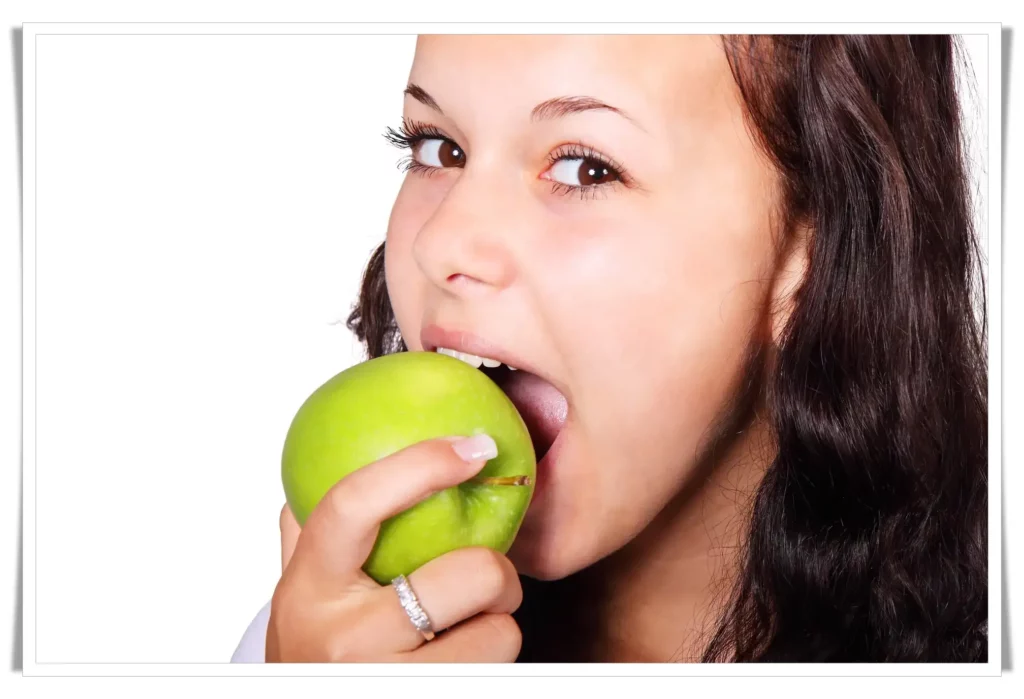
The Best Tips to Consider in a Balanced Diet
Getting into the habit of eating slowly and chewing more thoroughly can be a little challenging at first. If you have trouble remembering to do so, try this little trick: put your fork down in between each bite. Consciously stopping the momentum of feeding yourself can be key to setting this practice into a consistent daily routine.
Why You Need Antioxidants and A Guide To Natural Sources
The weight loss world has its own lingo and one of the phrases you'll hear over and over again is 'antioxidants'. So, what are antioxidants, and why are they so important?
The Science Behind Antioxidants
Antioxidants are plant chemicals, vitamins, and other nutrients that help clean up something called a free radical. In chemistry lingo, a free radical means a molecule in your body is missing an electron. This is not a balanced state, so the molecule searches out other molecules to grab that missing electron and when it does, it creates another free radical - another molecule missing an electron. So what does this mean? When you have molecules stealing electrons from other molecules, it leads to conditions like clogged arteries, accelerated aging, and damaged tissues - in other words, oxidation of your body's systems.
Why do free radicals occur? Actually, free radicals happen inside of you with natural body functions, like when your immune system fights off a cold virus. That process of killing the virus creates free radicals. Normally, a healthy body has no problem cleaning up the free radical mess and taking care that other molecules are balanced. However, when you consistently eat a poor diet, don't get enough sleep or exercise, experience continual stress, or come into contact with contaminants like pesticides and other toxic chemicals, the free radicals overwhelm your body's ability to contain them and that's when the damage starts occurring.
Enter antioxidants. These little powerhouses have the ability to scavenge for and destroy free radicals, breaking the chain reaction of instability and reducing inflammation and damage to your body.
Where To Get Antioxidants (Naturally)
While you can supply certain antioxidants with vitamin supplements, they only can do so much. Antioxidants work in conjunction with other bioactive elements like amino acids to do their job, so obtaining as many antioxidants from fresh, natural food is your best bet for controlling the free radical race inside of you.
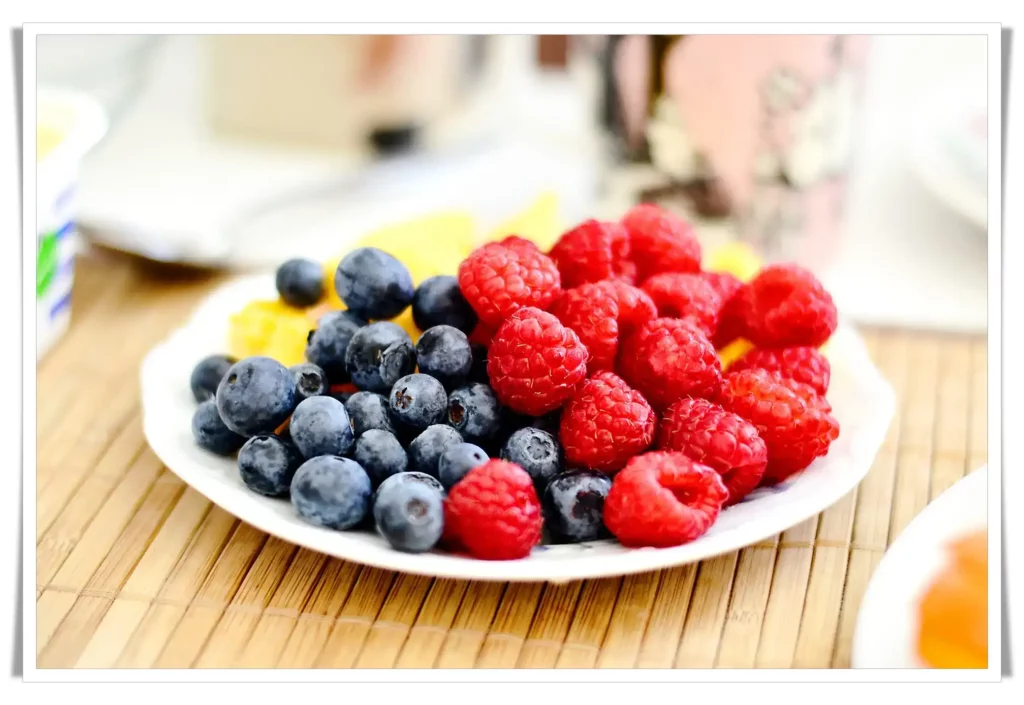
The Best Tips to Consider in a Balanced Diet
What kinds of foods have antioxidants? The best ones come from fruits and vegetables - and the more colorful, the better for you it is. Antioxidants can be found in the pigment (the color) of those foods. Strawberries, oranges, lemons, broccoli, blueberries, eggplant, and blackberries are just some of the foods that are great sources of antioxidants. Aim to eat five servings of fresh fruits and vegetables each day to give your body and your weight goal a fighting chance!

The Best Tips to Consider in a Balanced Diet
The Best Tips to Consider in a Balanced Diet - It is natural for anyone to ask about which foods should be eaten in a balanced diet. However, there are some common tips that can help you achieve your goals. It is also important to keep an eye on the portions and make sure you don’t exceed them by more than what you need.
If you want to eat healthily and get enough energy, do not forget to include these tips in your meal plan from now on!
If you have questions or want to comment, please leave them below and I will answer as soon as I can. Thank you for reading ''The Best Tips to Consider in a Balanced Diet!''

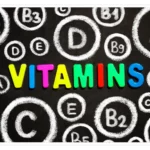
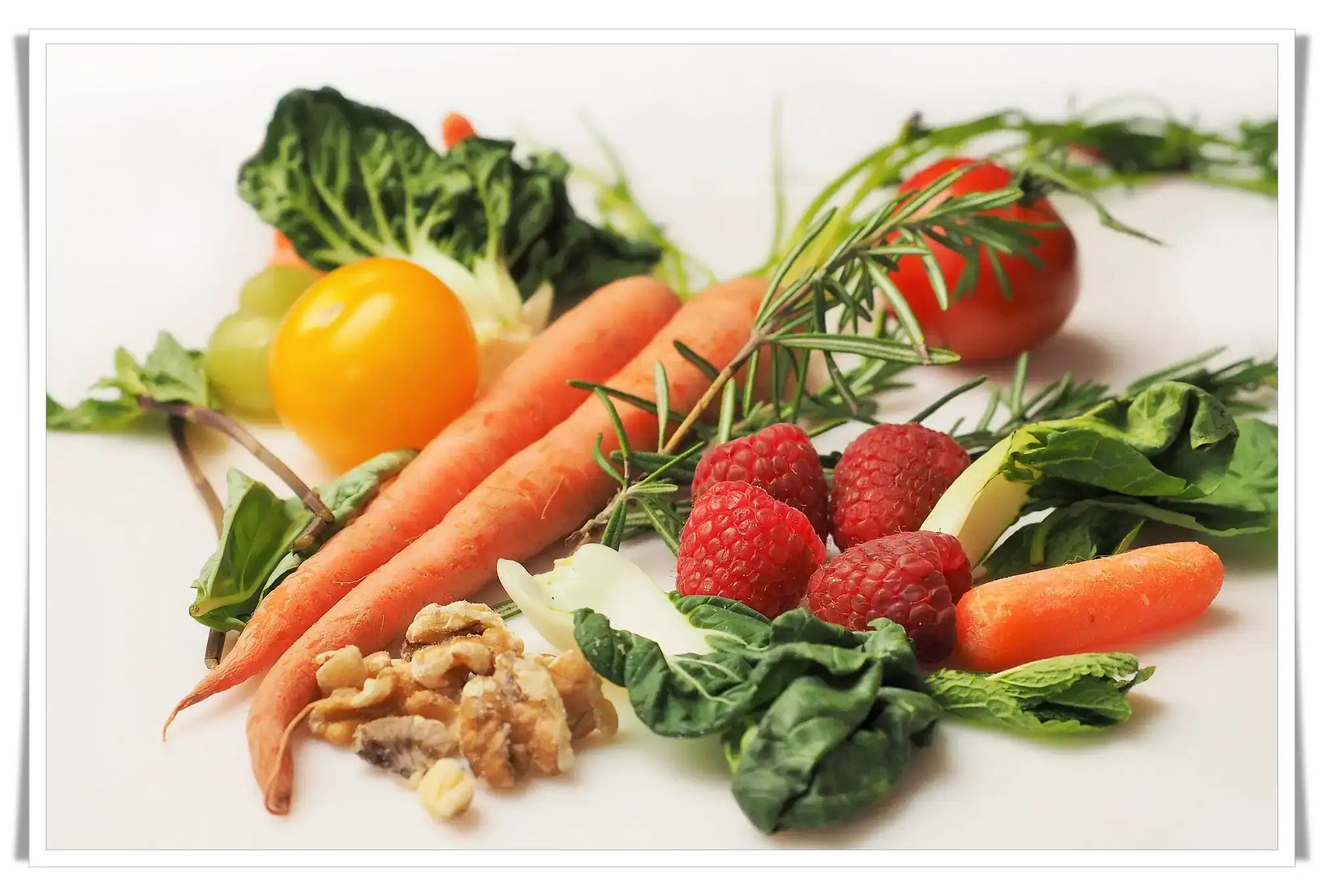
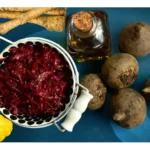

Your article helped me a lot. what do you think? I want to share your article to my website: gate.io
Simply desire to say your article is as astounding.The clarity for your post is just excellent and i can suppose you are knowledgeablein this subject. Fine with your permission letme to grasp your feed to keep updated with forthcoming post.Thank you one million and please keep up the gratifying work.Asking questions are truly pleasant thing if you are not understanding anything completely, howeverthis article offers nice understanding yet. gate io
Your point of view caught my eye and was very interesting. Thanks. I have a question for you. https://www.binance.com/pt-BR/register?ref=V3MG69RO
Your house is valueble for me. Thanks!?
Can you be more specific about the content of your article? After reading it, I still have some doubts. Hope you can help me.
Hello! I just want to give an enormous thumbs up for the great info you’ve right here on this post. I can be coming back to your blog for extra soon.
Thanks for sharing. I read many of your blog posts, cool, your blog is very good.
Your article helped me a lot, is there any more related content? Thanks!
Your article helped me a lot, is there any more related content? Thanks!
Wow, wonderful blog layout! How long have you been running a blog for?
you make blogging look easy. The overall
glance of your web site is great, as well as the content!
You can see similar: najlepszy sklep
and here sklep
I do not even understand how I finished up here, but I assumed this put up was once good.
I do not recognise who you are but certainly you’re going to a well-known blogger in case you aren’t already.
Cheers! I saw similar here: najlepszy sklep and also here:
sklep internetowy
Pingback: The Stomach-Saving Power of Broccoli: How It Works - bc-educate